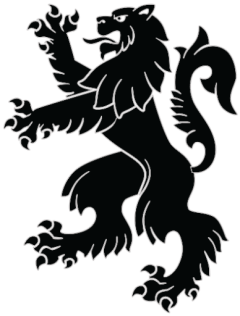Albert was the eighth of Charles Ferdinand’s eleven children born in April 1890. The 1911 Census shows him living at home aged 20 and working for John Player Tobacco Company as a Tobacco Hand.
Albert enlisted under the Lord Derby Scheme on 11th December 1915 and returned to his civilian life until he was mobilised on 22nd February 1916 as 36640 Private Albert Stanley D’Hooghe, and on 29th February 1916, Albert joined the 3rd (Reserve) Battalion Sherwood Foresters (Notts and Derby) Regiment.
He completed his training with the 3rd (Reserve) Battalion and was posted to the Sherwood Foresters Base Depot in France arriving on that infamous day in British military history, 1st July 1916, the opening day of the Battle of the Somme.
On 3rd August 1916, Albert commenced a short period with the 11th Entrenching Battalion before joining the 17th Battalion (Welbeck Rangers) Sherwood Foresters on 3rd September 1916, a battalion of the 117th Infantry Brigade in 39th Division.
It is therefore, quite likely that Albert fought on the Somme at the battles of Thiepval, the Ancre Heights and the battle of The Ancre in November 1916.
Albert was deemed a proficient soldier and was granted Class 1 Proficiency Pay from 4th February 1917.
Units of the 39th Division, including 17th Sherwood Foresters, were heavily involved in the 3rd Battle of Ypres (Passchendaele) and it is possible that Albert survived some or all of the phases of this battle including Pilckem Ridge, Langemarck, Menin Road and Polygon Wood, although he is recorded as being on leave from 5th to 19th November 1917.
In early 1918, the losses sustained in 1917 saw many battalions disbanded or amalgamated and the 17th Battalion was disbanded with Albert posted to the 16th Battalion (Chatsworth Rifles) Sherwood Foresters on 9th February 1918 along with nine officers and two-hundred men of the 17th.
The 16th Battalion was in continuous action from the opening of the German Spring Offensive on 21st March 1918 until the end of the month retreating in good order some 35 miles from Norlu, north east of Peronne across the 1916 Somme battlefield. In April, the battalion was re-formed at two company strength and thrown into the battle once again to help stem the German offensive, Operation Georgette, south of Ypres.
At this point, the battalion was shattered and the remnants of the 16th Battalion was reduced to Cadre strength and attached to the 66th (2nd West Lancashire) Division on 16th August 1918, in a training role including with American troops.
Albert’s fighting was now over and after the Armistice, he was granted leave from 10th to 24th December 1918 and during this leave, on the 21st, he received notice of his posting to the 11th Battalion Sherwood Foresters.
He served in France with the 11th Battalion until 1st February 1919 when he returned to the UK and was demobilised and placed on the Army Reserve on 3rd March 1919.
Albert was awarded the British War Medal and the Victory Medal for his service and appears to have escaped any serious wounds.
In the 1939 UK Register, Albert is living with his fellow veteran brother Herbert, at 537 Alfreton Road, Nottingham and is still working as a Tobacco Hand. Albert is eventually recorded as dying in November 1952 aged 62.



